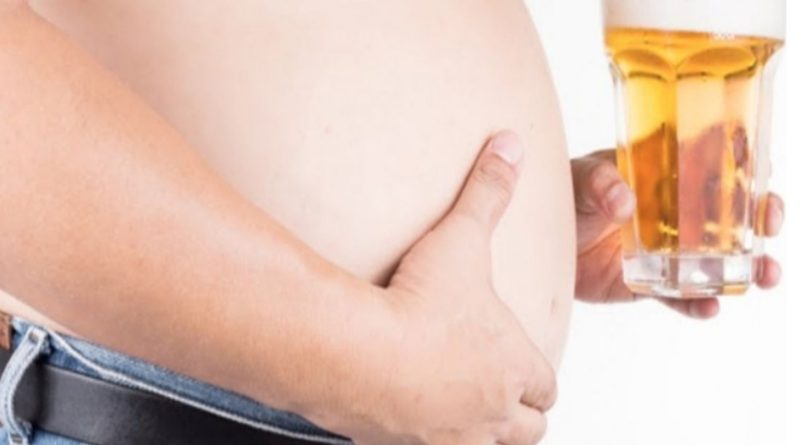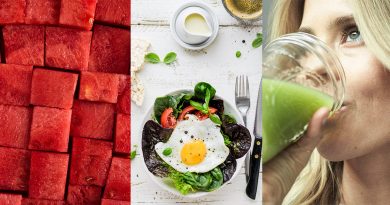Does Drinking Alcohol Make You Gain Weight?
A bottle of alcohol is a nutrient-depleted calorie bomb high in sugar that causes several health problems. A serving of beer or wine contains about 150 calories. Some of the hard liquors such as vodka and tequila contain nearly 100 calories per ounce. And your typical cocktail may contain one or two. However, empty calories aren’t the only reason alcohol causes weight gain. These beverages create a perfect storm in your body, that causes the body to run less efficiently and, as a result, your body stores more fat.
Because one gram of alcohol contains 7.1 Kcal of energy, it is safe to assume that alcohol consumption may result in weight gain. But there’s a lot more to it than that. Alcohol causes weight gain primarily in heavy drinkers. In mild to moderate drinkers, it may even be beneficial in some cases. Furthermore, different types of alcohol appear to have different effects on body weight. While sipping your drink, you might be wondering if alcohol causes weight gain. And it makes you question, can you drink alcohol and still lose weight? The answer can be yes or no depending on your alcohol intake routine.
Why Alcohol Makes You Gain Weight
Alcohol consumption is one of several factors that can contribute to objectionable weight gain. People who are overweight or obese and consume more alcohol than is recommended may be able to lose weight more easily once they stop drinking alcohol. However, the relationship between alcohol consumption and weight is complicated. Alcohol has numerous negative health effects. Here’s how regular alcohol consumption contributes to weight gain.
- Alcohol calories are burned first
Aside from caloric content, how the calories from alcoholic drinks are handled once inside your body can have a significant impact on your body weight. Typically, our body consumes the food on a first-come, first-served basis. But unfortunately, when alcohol enters your body, it is handled first that replaces the previous meal as the body’s primary fuel source. It may appear as good news that those alcohol calories are being used first but this is bad news for the food in your stomach. If the energy carbohydrates and sugar from the food is not immediately required, it is wasted. The remaining is then stored as fat in your body. According to an Oxford University study as mentioned on Fox News, that extra fat can appear on the weighing scale in as little as four hours.
- Increase Appetite
There is a clear link between the intake of alcohol and excessive hunger. Alcohol consumption can disrupt the leptin which is a hormone that tells our brains when we have had enough. The disruption causes us to eat more until we feel full. Furthermore, despite the excess calories, studies have shown that alcohol provides no gorge to feelings of hunger. This is most likely because alcohol activates the neurons that are directly related to the body’s starvation mode.
Alcohol can also increase your craving for junk food. You may ask why? Alcohol enhances the flavor of salts and fats, two flavor areas junk food is famous for. We might normally be able to avoid oily or salty foods late at night because our metabolism is at the slowest. However, alcohol can reduce both our inhibitions and our judgment, making that late-night fast-food run difficult to resist.
- Slow Metabolism
The rate of your metabolism is directly proportional to the calories you burn at rest. Because having extra calories causes fat accumulation and as a result you gain weight. That is why it is said that the faster your metabolism, the better. Alcohol can impair your body’s fat-burning ability by harming the organs which are responsible for digestion. The stomach, liver, and intestines are critical to your body’s ability to absorb nutrients. Alcohol can impair the function of these organs and that makes your digestive system less efficient at breaking down food.
If you are trying to lose weight, skipping the alcoholic drinks could make a big difference. Even if you are satisfied with your physical appearance including your weight, limiting your alcohol consumption will improve your internal health significantly. It lowers the chances of heart or liver disease, diabetes, and even certain cancers.
Calories In Different Type of Alcohols
Making healthy eating selections can be challenging, even when you are at your healthiest. Your ability to make decisions is impacted by alcohol’s effects on the brain. You could be more prone to give in to urges to eat unhealthier foods if they are around.
Different types of alcohol have different calorie counts, but all can cause weight gain if consumed in excess. The calorie content of beer, wine, and liquor is approximated as follows.
- Beer has 150 calories per 12 oz.
- 5 oz. wine has 120 calories.
- Liquor has 100 calories per 1.5 oz.
Liquor has the fewest calories per recommended serving. However, this does not include the calories added by any liquids mixed with the liquor. Home-poured drinks and drinks served in bars and restaurants are also typically larger than a “standing serving.”
Do You Need To Give Up Alcohol To Lose Weight
It is not necessary to abstain from alcohol in order to live a healthy lifestyle. A glass of red wine with dinner, for example, is perfectly acceptable. The issue arises when people binge drink. It means if you consume three or more glasses of wine or pints of beer at once.
It is critical to understand both the direct and indirect effects of alcohol on your weight. One of the most effective things you can do to improve your health and lose weight is to stop binge drinking. By reducing binge drinking, you may inadvertently lose weight and achieve a lower BMI without making any other lifestyle changes.
How To Drink Alcohol Without Gaining Weight
It may sound impossible but alcohol has some advantages too. Limited consumption of alcoholic drinks raises HDL cholesterol levels. According to studies, people who drink appropriately each week live longer lives rather than gulping down in one night. So, drinking alcohol and losing weight can go hand in hand.
- Keep a check on your alcohol servings when you drink. A glass of wine is not a full glass, but rather 5 oz.
- You can reduce the calories from your drink through mixer. Instead of regular tonic water and other high-calorie carbonated drinks, go for margaritas with fresh lime juice, diet tonic water or you can choose club soda if it’s calorie free. These margaritas will satisfy your alcohol craving while keeping your sugar intake to a minimum.
- If you are trying to lose weight quickly, plan your diet schedule before cracking open a wine bottle after work. This can reduce the impact of your drinks on overall body fat burning.
- This does not imply that you should begin to count calories. In fact, counting isn’t always the key to losing weight and it can lead you to follow extreme restrictions in your diet and eating habits. However, knowing the lesser calorie alcohol options can help you make smart choices before you sip and, as a result, stick to your weight-loss goal.
Tips To Reduce Alcohol Intake
- Set a goal for yourself to not consume alcohol during the week.
- Limit yourself to 1-2 alcoholic drinks at a time and put the bottle of wine away once you have poured a glass.
- When you do drink, enjoy it with a relaxing meal or with friends, rather than mindlessly drinking while distracted in front of the television.
- Alternate between sparkling water and alcoholic beverages at social gatherings.
- Long drinks are preferable because the alcohol is less concentrated and lasts longer.
Ending Words
While one can enjoy a drink or two on occasion, it is critical to exercise extreme caution. Alcohol can have a variety of negative effects on your health. Be mindful of your alcohol consumption to help your body function at its best. Alcoholism has been linked to an increased risk of cancer, heart disease, mental illness, and dementia.




